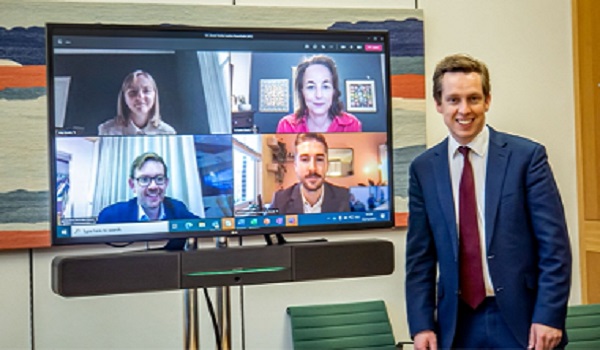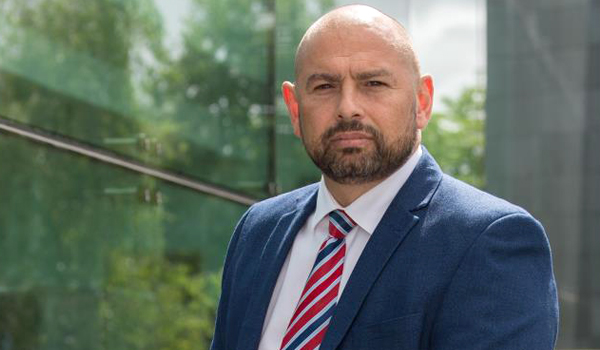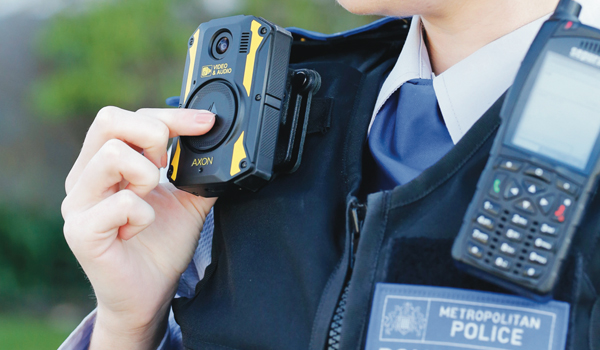Stalkers ‘adapt cyber skills’ to target victims online during lockdown
Online and digital stalking has “increased in frequency and intensity” during the current Covid-19 crisis.
And the National Police Chiefs’ Council (NPCC) has warned there that is likely to be a further rise in stalking offences as the lockdown period starts to lift and stalkers are able to use more traditional methods to target their victims.
Police forces and charities say the current crisis has led to stalkers adapting their approaches and using online methods in order to continue to stalk their victims.
This includes messaging through any platform, contact or other interaction on social media, making posts or comments about or alluding to the victim, use of spyware or tracking apps or software, hacking or otherwise gaining access to victim’s accounts on any online platform.
Stalkers have also been accessing internet-connected devices in victim’s homes, such video doorbells, assistants like Alexa, Google Home or Siri, and home security systems.
Victims contacting the stalking charity Suzy Lamplugh Trust report that online and digital stalking has increased in frequency and intensity during the pandemic, and some stalkers have specifically used Covid-19 as a threat – either by threatening to infect their victim, or by isolating victims and damaging their businesses by spreading rumours that they themselves are infected.
The NPCC lead for stalking and harassment offences, Deputy Chief Constable Paul Mills, said: “Our evidence shows that the risks to victims of stalking have continued during the coronavirus pandemic, in particular we know that stalkers have turned to online and digital methods to stalk their victims. We are also now likely to see a further rise in such offences as the lockdown period starts to lift and stalkers are able to use more traditional methods to target their victims.
“We are working closely with other statutory agencies and specialist support organisations to ensure that stalking victims are responded to appropriately and crimes are investigated. Despite the ongoing health pandemic, victims of stalking must remain visible and it is crucial that anyone affected by this serious crime is reassured that support through the National Stalking Helpline and other advocacy services has not changed.
“We know this continues to be a troubling time for all, particularly victims of stalking and we want to ensure victims can get the help they need. We continue to take stalking extremely seriously, and we remain fully committed to doing all that we can to bring offenders to justice and safeguard victims.
He is urging anyone who believes they may be subject of stalking to come forward at the earliest opportunity and report their concerns to police or other support agencies so they can work with them to protect them.
Suky Bhaker, chief executive officer of the Suzy Lamplugh Trust said: “Stalking is a crime of psychological terror that impacts on all aspects of a victim’s life, often in ways that are long-lasting and traumatic. We know from the calls we have received to the National Stalking Helpline over the past few months that stalking victims need support as much as ever and we want to reiterate our message that we are here to support you.”
Chair of the Association of Police and Crime Commissioners Katy Bourne said while many criminals were thwarted by the lockdown measures, stalkers continued to “fixate and obsess” and the way many have adapted their cyber skills to reach their victims concerns her deeply.
“We know all too well that this behaviour causes extreme distress and can quickly escalate into physical activity and harm,” she added.
Ms Bourne said victims do not have to suffer in silence and should report.
“If you are experiencing behaviour that is fixated, obsessive, unwanted or repeated you are being stalked. It is a crime and you will be taken seriously when you ask for help,” she added.






